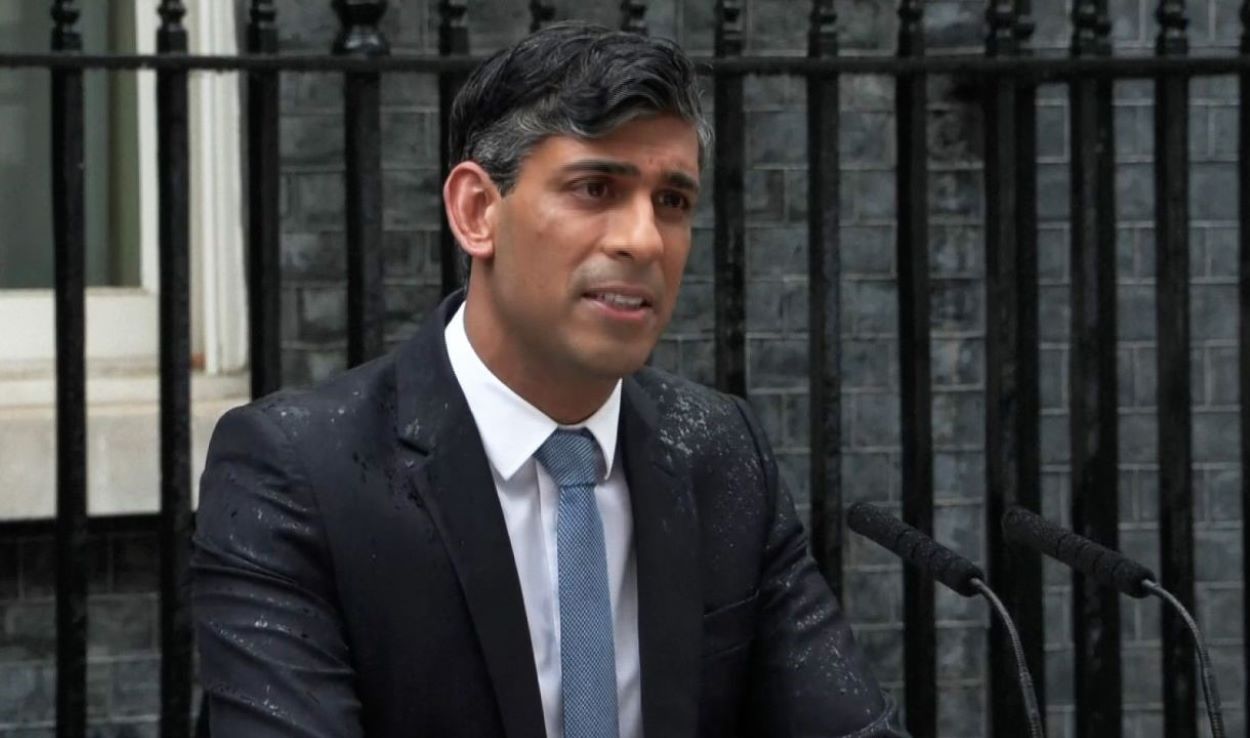British Prime Minister Rishi Sunak called a national election on Wednesday, setting the vote for July 4. After 14 years in power, his governing Conservatives are widely expected to lose to the opposition Labour Party.
Ending months of speculation, Sunak announced the election outside his 10 Downing Street residence. He called the vote earlier than some expected, a risky move given that his party is far behind in opinion polls.
Sunak enters the election trailing Labour and isolated from some in his party. He relies heavily on a small team of advisers to navigate what is set to be an intense campaign.
Despite the risks, he believes that recent economic gains, such as falling inflation and the fastest economic growth in almost three years, make this the right time to seek a new term.
The former investment banker and finance minister became prime minister less than two years ago. He has struggled to define his agenda and is frustrated that his perceived successes are underappreciated.
Both parties have effectively started their campaigns, focusing on the economy and defense.
Sunak’s government accused Labour of planning tax increases and being unprepared to handle Britain’s challenges. Labour denies these charges.
Labour criticizes the government for 14 years of economic mismanagement, which has left people worse off and failed to provide stability for businesses. They lead by about 20 percentage points in polls but worry about undecided voters. Sunak might aim to exploit this uncertainty and catch Labour off guard, given they have not yet completed candidate selections.
Sunak also hopes economic gains and progress on his immigration plan, such as flights sending illegal asylum seekers to Rwanda, will boost his party. The earliest date for these flights is June 24, ten days before the election.






